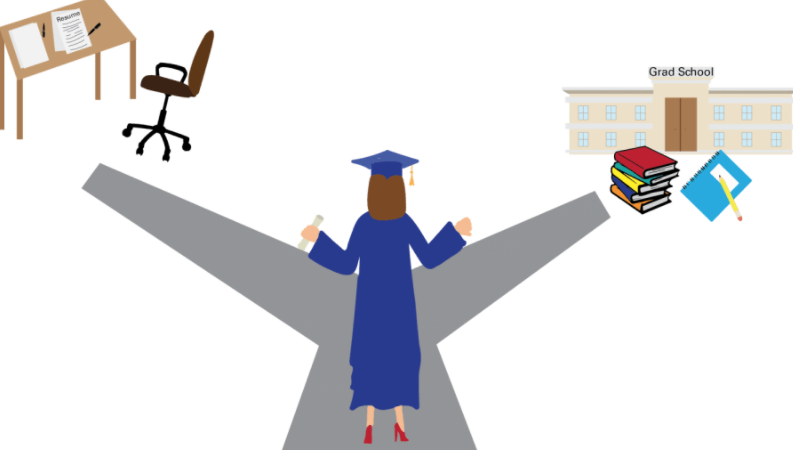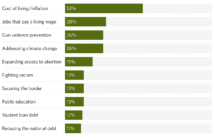The Article below was published in Vol. 136, Issue 7 of the Lake Forest College Stentor on April 2, 2021.
Aaron O’Neil ’21
Staff Writer
The pandemic has created chaos, confusion, and many roadblocks. For many, this has led to missed opportunities. For others, it has created the right opportunity to pursue higher education.
Since 2010, the number of individuals earning a master’s degree has increased by 46 percent and PhDs by 63 percent, according to the U.S. Census Bureau. During the COVID-19 pandemic, interest in higher education has increased, as many schools are reporting significant spikes in their applications. With an increased number of individuals possessing higher education come questions of how the job market will respond.
Bruce Lindvall, Associate Dean of Admissions at Northwestern University’s McCormick School of Engineering, shared his view of the effects of both the job market and the pandemic on graduate school applications. Lindvall emphasized the strong interest they receive from their undergraduates, but also noted that outside interest often comes as a result of desired upward movement.
In the engineering field, bachelor’s degrees do not face much competition from graduate students when it comes to entry-level positions. In contrast, graduate degrees are often required to provide flexibility for entry-level workers as promotion often necessitates a graduate degree. While this requirement may be unique to the engineering field, Lindvall noted this application cycle has fluctuated more than normal due to economic uncertainty and increased deferments from international students.
Colleen Monks, Interim Director of the Lake Forest College Career Advancement Center (CAC), noted an increased interest in graduate school was reflected in the College’s 2020 class. While a large portion of the interest resulted from economic uncertainty, Monks pointed out that interest also stemmed from a desire for students to make themselves more marketable to employers.
When asked how an increased number of graduate degrees could impact the job market in the near future, Monks noted that “there will be increased competition overall.” She added that employers value “well-rounded candidates” with industry applicable skills and that the liberal arts undergraduate model can provide an advantage in this area.
Eric Heidenreich ’19, a former recruiter and current account manager at Aerotek, shared a similar opinion to Monks. He acknowledged that although the number of undergraduates transitioning directly to graduate school is growing, those students are not necessarily at an advantage.
“Many of our clients would take an applicant with five years of work experience in the industry and no graduate degree over an applicant with a master’s degree and no work experience,” Heidenreich stated. He emphasized employers’ interest in being able to “mold work philosophy and technical experience” as a key advantage for undergraduates entering the workforce.
However, Heidenreich did note that graduate students retain a greater advantage when it comes to consulting, stating, “that’s where master’s degrees really take over.” Many clients prefer specialized knowledge when it comes to consulting opportunities and graduate students have the advantage simply by having more education, according to Heidenreich.
While statistics tend to indicate that graduate degrees are becoming more common and interest in graduate school has spiked during the pandemic, a closer look into the actual effects muddies the waters.
Discussions with professionals involved with students, applicants, and recruiting, indicate that their experiences have not reflected a clear changing of the guard or preference for graduate degrees over bachelor’s degrees. Other factors such as technical skills, work experience, and overall fit make the comparison between having a graduate degree versus having a bachelor’s degree much less straightforward.


